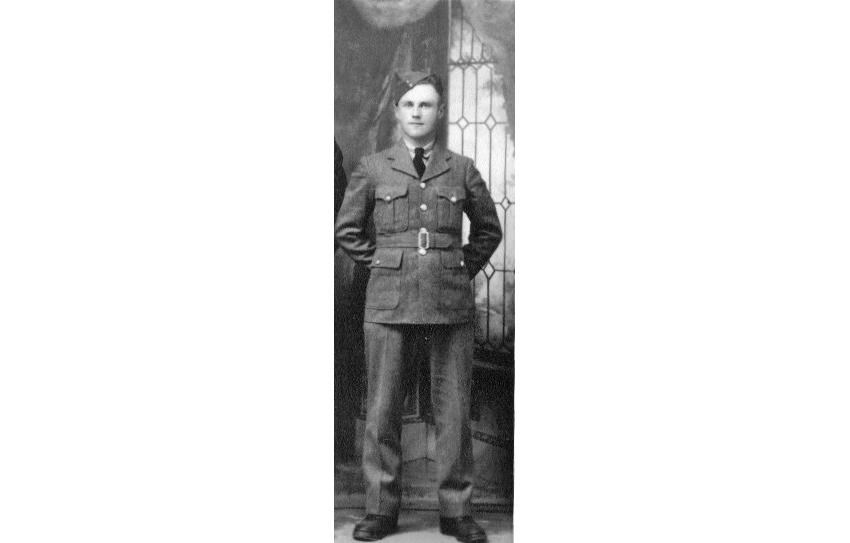During the blessing of graves, a yearly practice within Catholicism, I noticed that my ancestor, John Banman, did not have a little Canadian flag beside his modest headstone. I had observed elsewhere in the cemetery that such emblems occurred with regularity, marking who had served. There is no offense to be taken here; I simply owe someone a phone call to ask for a correction to the list. By all accounts, John wasn’t one to put up a big fuss, and neither will I.
There will be some paperwork to sort out I am sure, including looking through his service record. I believe my mother has access to it, and it will be a worthwhile exercise in our season of remembrance, adding a personal touch. John passed away long before I was born, when my mother was 11 years old. His legacy carried on via his wife and children - indeed, so did his service, as my mother went to school due to the scholarship allotted to a veteran’s descendants.
John Banman was born in 1924 in Saskatchewan, not far from Swift Current. He grew up in one of the many ethnic enclaves that dotted the prairies thanks to Canada’s aggressive immigration and resettlement policies from 1870 onwards. John’s hamlet was Mennonite, and their livelihood was agriculture. Life was not easy during the 1930s, as drought killed crops and the Great Depression strangled the economy, but his family survived these brutal hardships.
As Rudy Wiebe reminds us, peace shall destroy many. The Second World War ensured that raw resources, particularly food, would receive a good price at market. For those who could conscientiously object on religious grounds to combat, such as the Mennonites, a large windfall was to be had. Many Anabaptists increased their holdings at this time, coupling the growing war economy with business opportunities at home. A rising tide lifted all non-combatants boats.
But conscientious objection required the endorsement of one’s parents at that time. And after a falling out with his own father, who allegedly failed to be a teetotaller, John found himself called up by the Canadian war effort. He had just become engaged to Anna Friesen, my grandmother, whom he promised to marry when he returned at the end of the war. Like many other young men, he waved goodbye to his beloved and his home for the CPR, heading east.
Private Banman was sent to England to prepare for the invasion. His cohort was picked for the Dieppe raid, an operation that went badly for the men involved. But just before the raid occurred, a drill sergeant pulled Private Banman aside to discipline him for bad marching form. My grandfather exposed his flat feet, which made him unfit for combat. Asked if he had any other skills for the army, John confessed he could speak German due to being a Mennonite.
Thus, Private Banman served the rest of the war in a POW camp for captured Germans and their allies. Upon his honorable discharge, he was faithful to his promise, marrying Anna as soon as he got home. It would have been a scene for the movies, but instead it was a chapter for the brooding novels that are written about Canada. John and Anna’s Anabaptist community stated if he took the veterans’ land grant from the government, his family would be shunned.
I cannot imagine what kind of blow that would have been for my grandfather, to have done his duty because of his father’s spite, only to be threatened with rejection if he took what was his just reward. John packed up his bride and headed with many other Prairie-born folks to British Columbia, settling in Vanderhoof, working at the mill. He and Anna raised five children in a tiny shack across the river, while he built their home with cash. In 1973, John died of cancer.
Private John Banman never fully reaped the benefits of his fidelity, hard work, or service, dying at 49. And yet the seed planted by his quiet life has now sprouted into a large and happy family. All of us stand on the shoulders of giants: one of mine is John Banman.
Lest we forget.
Nathan Giede is a Prince George writer.



